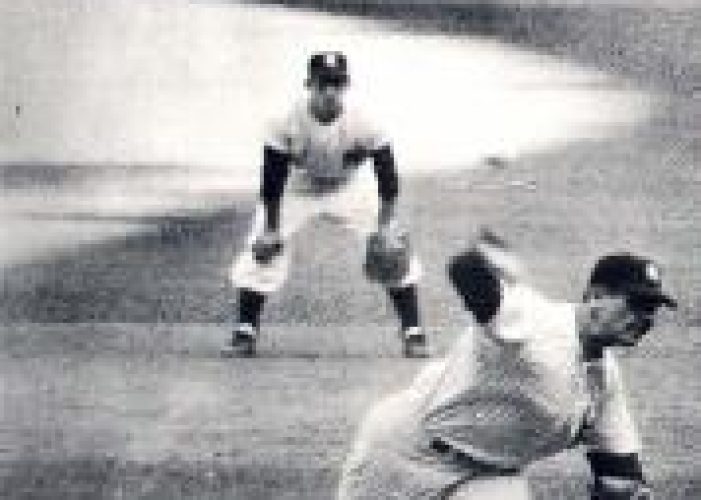The New York Yankees and the Dodgers, initially from Brooklyn and later Los Angeles, have one of the most storied rivalries in Major League Baseball history, especially in the World Series. Their matchups are legendary, spanning decades and embodying classic East Coast vs. West Coast showdowns. Here’s a look at the history and significance of their encounters on baseball’s biggest stage.
The Beginnings: Brooklyn vs. The Bronx (1941-1956)
The rivalry’s roots trace back to the early 20th century, but it was in 1941 that the two teams faced off in the World Series for the first time. The Yankees, already an established powerhouse with eight World Series titles, took on the Brooklyn Dodgers, a franchise still searching for its first championship. The Yankees won the 1941 Series in five games, helped by a famous dropped third strike by Dodgers catcher Mickey Owen that allowed the Yankees to rally in Game 4.
The rivalry grew in intensity during the 1940s and 1950s, with the two teams meeting in the World Series six times between 1941 and 1956. The Yankees often had the upper hand, winning five of those series. The Dodgers, however, came heartbreakingly close on multiple occasions. For Brooklyn fans, the phrase “Wait ’til next year” became a painful mantra as the Yankees consistently thwarted their hopes.
That changed in 1955, when the Dodgers finally broke through. Behind the pitching heroics of Johnny Podres and a memorable Game 7 win, the “Boys of Summer” defeated the Yankees in seven games to capture their first-ever World Series title. The victory brought immense relief to Brooklyn, and the rivalry reached a fever pitch. The Yankees avenged this loss the following year, reclaiming the title in a seven-game thriller in 1956, highlighted by Don Larsen‘s perfect game in Game 5.
A New Chapter: The Dodgers Move West (1958-1978)
In 1958, the Dodgers moved from Brooklyn to Los Angeles, dramatically changing the landscape of the rivalry. The relocation ended the subway Series era, where fans could easily travel between Yankee Stadium in the Bronx and Ebbets Field in Brooklyn. However, it didn’t take long for the Dodgers and Yankees to renew their World Series rivalry from opposite coasts.
The teams met again in the Fall Classic in 1963, marking the first time the Yankees played a World Series against a West Coast team. This time, the Dodgers dominated, sweeping the Yankees in four games behind the pitching of Sandy Koufax, who won two games and set a then-World Series strikeout record. The sweep marked a shift in power, as the Yankees dynasty began to fade while the Dodgers asserted themselves as a new force in baseball.
The rivalry took on new life in the late 1970s, with the Yankees and Dodgers meeting in consecutive World Series in 1977 and 1978. The Yankees emerged victorious both times, with Reggie Jackson earning the nickname “Mr. October” after hitting three home runs in Game 6 of the 1977 series. The Yankees clinched the 1978 title with a dramatic comeback, having been down two games to none. These back-to-back championships cemented the Yankees’ return to prominence, while the Dodgers, despite their consistent success, were left with near-misses.
The Modern Era: Renewing the Rivalry (1981-Present)
The rivalry continued into the 1980s with another memorable clash in the 1981 World Series. This time, the Dodgers had the last laugh, defeating the Yankees in six games to secure their first title since 1965. Led by World Series MVP Ron Cey, Pedro Guerrero, and Steve Yeager, the Dodgers avenged their losses from the late ’70s and brought the championship back to Los Angeles.
While the Yankees and Dodgers haven’t met as frequently in the World Series since, their rivalry still resonates. The 1981 victory marked the last time the two teams faced off in the Fall Classic, but both clubs have remained among the most successful and iconic in MLB history. With the Yankees consistently contending in the American League and the Dodgers becoming a powerhouse in the National League, fans continue to hope for another epic World Series matchup.
With this in mind, discover how leveraging a bet with bet365 bonus code can add an extra layer of excitement to this long standing Yankees-Dodgers rivalry.
The Significance of the Rivalry
The Yankees-Dodgers World Series matchups symbolize some of the most compelling narratives in baseball. The rivalry has transcended generations, capturing the imaginations of fans on both coasts. It encompasses the glamour of New York and the star power of Los Angeles, as well as the rich history of the game itself.
The Yankees, with their record 27 World Series titles, and the Dodgers, with seven championships, represent two of the sport’s most successful franchises. Their World Series battles reflect the evolution of baseball, from the golden age of the 1940s and 1950s to the dynamic changes in the modern era. The rivalry, whether played out in the boroughs of New York or the sun-drenched ballparks of California, remains a quintessential part of baseball lore.




